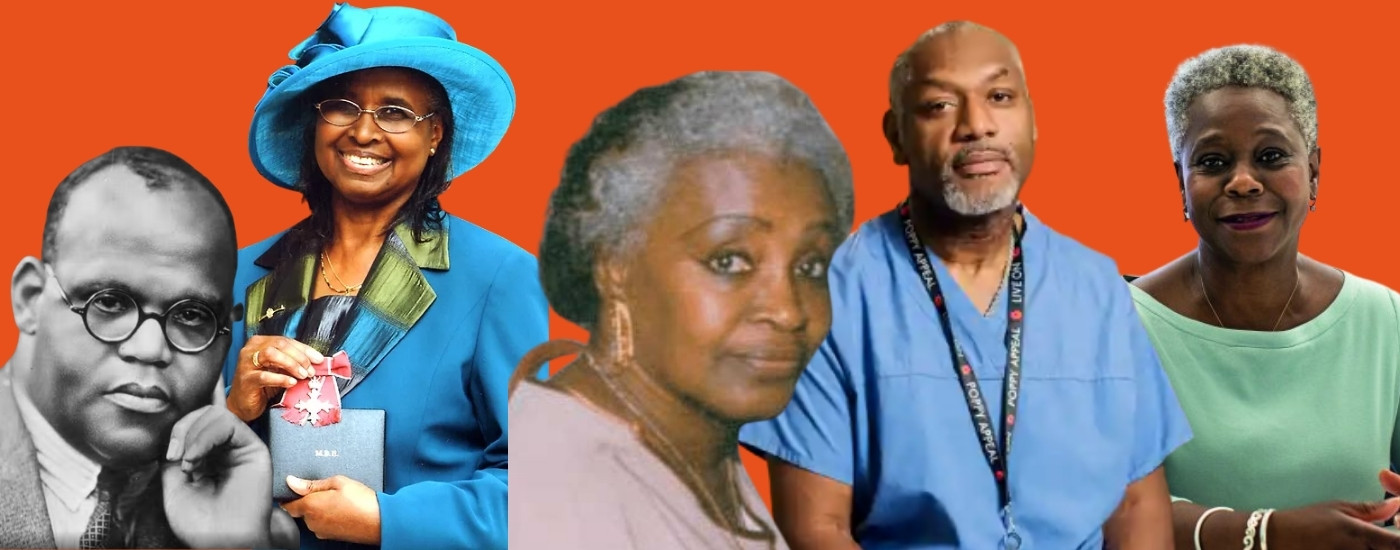Black History Month – 5 people who made Healthcare History and challenged Black race discrimination
Published 3rd October 2022
From members of the Windrush generation, who were recruited to become NHS staff, to the 27,612 people from an African background currently working in the NHS, the work and passion of Black people have played a huge role in building our healthcare system and providing care for free at the point of need.
Today, like before, Black people make up a significant part of the NHS workforce, continue to contribute to the improvement of healthcare, and serve their communities.
Dame Donna Kinnair – former Chief Executive and General Secretary of the Royal College of Nursing
Professor Dame Donna Kinnair DBE (born 1960 or 1961) is a British nurse and former Chief Executive and General Secretary of the Royal College of Nursing (RCN). She has specialised in child protection, providing leadership in major hospital trusts in London, teaching, and advising on legal and governmental committees.
In 2020 Kinnair had been recognised for her influence, having been listed in the 2020 Powerlist – which lists the 100 most influential Britons of African/African Caribbean descent, and in 2021 Kinnair reached the top 10 of the Powerlist 2021 in recognition of her work during the COVID-19 pandemic.
Dr Harold Moody – GP and civil rights activist
Born in Jamaica on 08 October 1882, Harold Moody travelled to England in 1904 and studied medicine at Kings College London, graduating top of his class in 1910. Despite his clear academic brilliance however, he was unable to gain work as a doctor because of the colour of his skin.
He was left with little option but to set up his own practice from his home in 1913. At a time before the NHS began in 1948, Dr Moody used his medical ability and compassion for others to treat poor children free of charge. He also welcomed into his home those who had been refused lodgings due to the colour of their skin. Through his interactions within the community he became more and more aware of the racial injustices that others were facing, and he took it upon himself to use his position, wherever he could, to right those wrongs.
In 1931 Dr Moody founded the ‘League of Coloured Peoples’ and as President he worked tirelessly lobbying politicians, the civil service and trade unions seeking to build and strengthen race relations and challenge injustices.
Daphne Steele – first Black Matron in the NHS
Born in British Guyana (as it then was) in 1929, Daphne Steele was one of the many people from the Caribbean who dedicated their lives to the National Health Service.
In 1964, Steele was appointed as Matron at St. Winifred’s Hospital in Ilkley, West Yorkshire. This was the first time that a Black person had been appointed as a Matron anywhere in the NHS. The appointment made news worldwide, with Steele receiving around 350 letters from well-wishers. After the hospital closed in 1971, Steele became a health visitor at Leeds University.
Louise Da-Cocodia – activist and first Black senior nursing officer
Louise moved to England in 1955 after being invited by the government to train as a nurse in the newly formed NHS. Hard work and determination saw Louise rise through the ranks to become Assistant Superintendent of District Nurses, the first Black senior nursing officer in Manchester. Despite her success, Louise faced discrimination and racism from patients and colleagues alike. Determined to combat discrimination after the racism she experienced, Louise became one of Manchester’s most important anti-racism campaigners and community activist.
Dr Martin Griffith – national clinical director for violence reduction
Martin set up the UK’s first hospital ward-based violence reduction service at Barts Health in 2015. The award-winning programme sees hospital staff and case workers from the charity St Giles Trust help young patients injured through knife crime while they are still being treated in the hospital, to help break the cycle of violence at the point of crisis.

